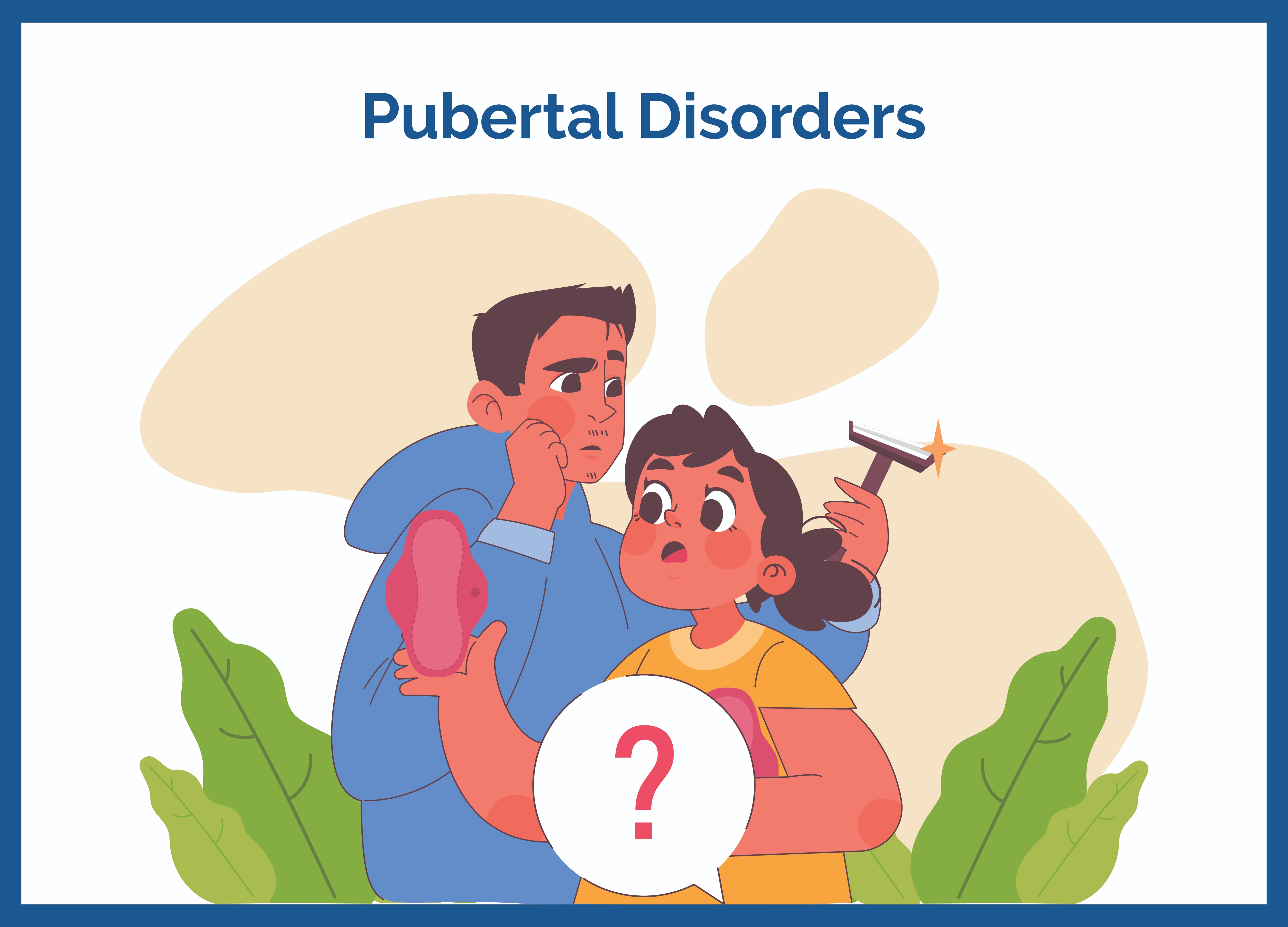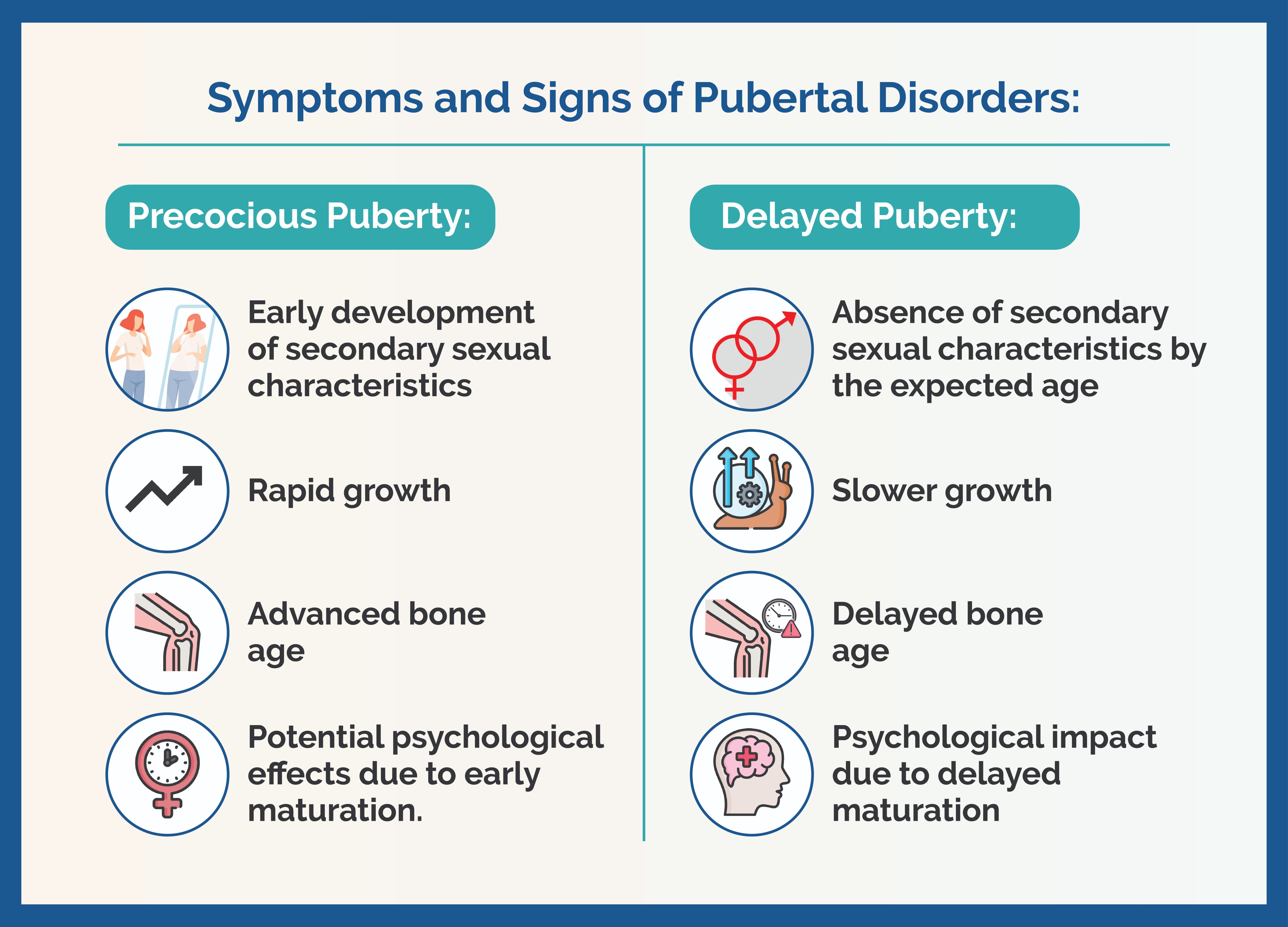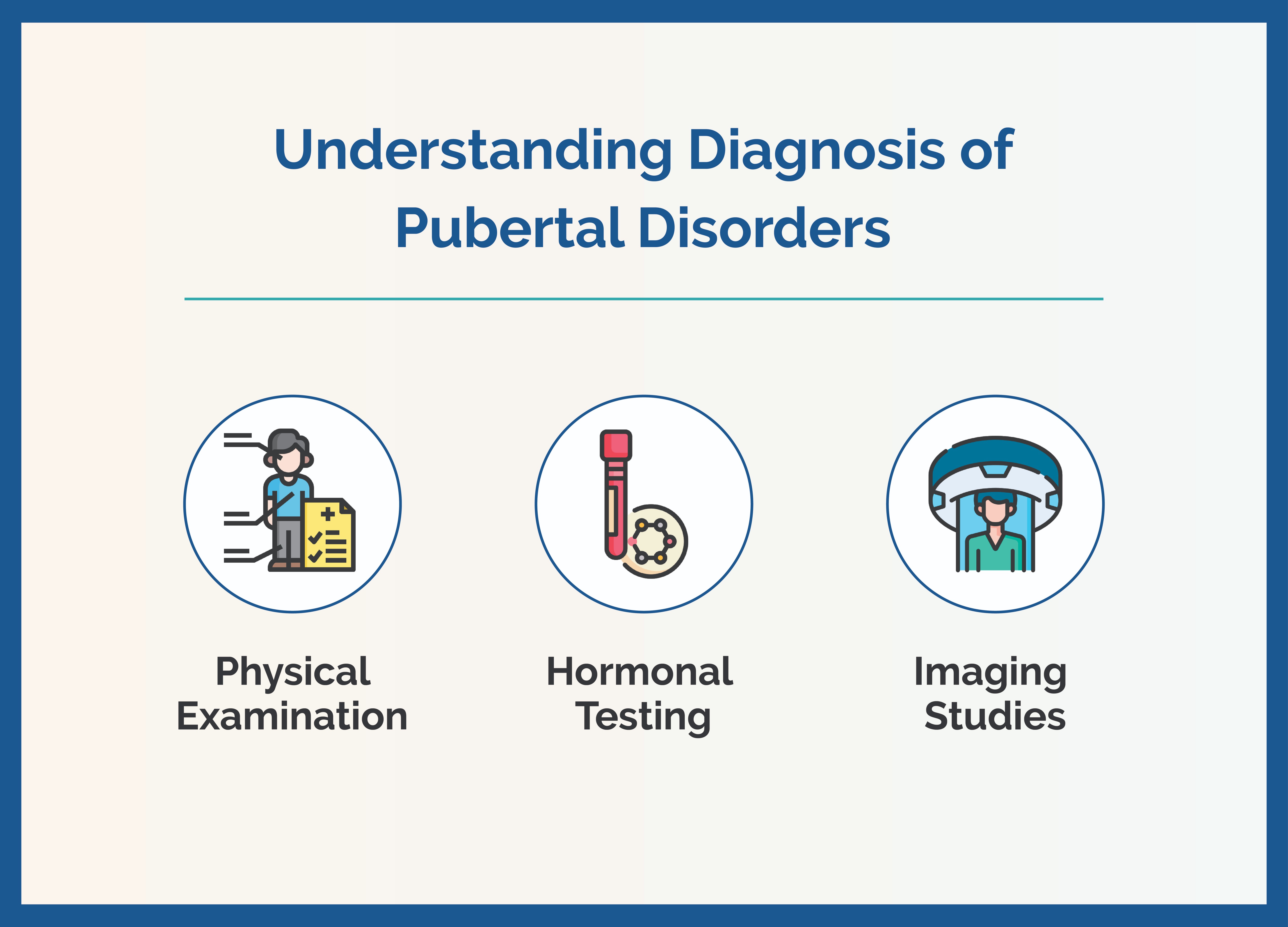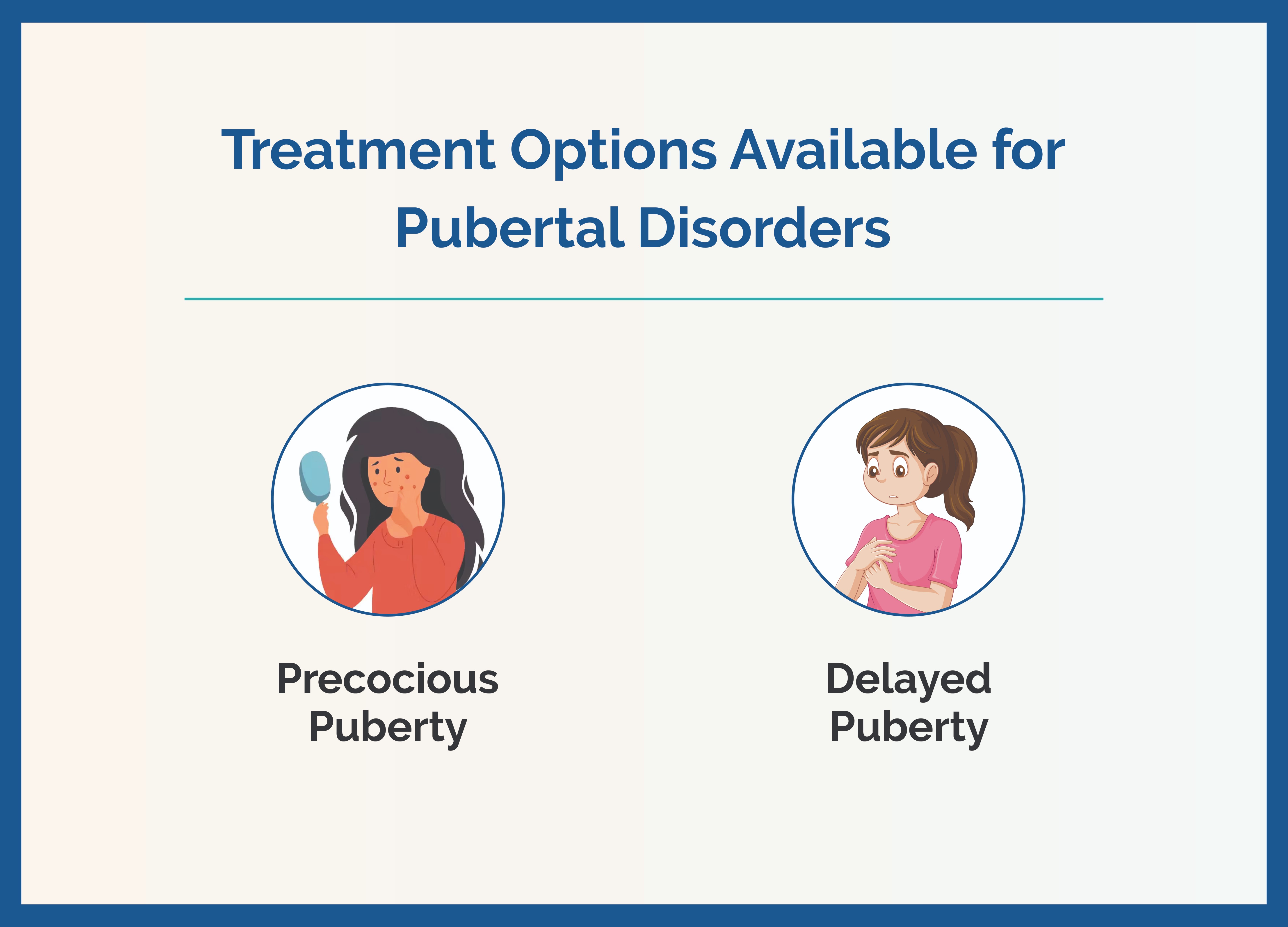Frequently Asked Questions (FAQs):
What are the psychological impacts of pubertal disorders?
Pubertal timing can affect self-esteem and social interactions, especially when significantly early or
delayed
Can pubertal disorders affect fertility?
Depending on the underlying cause and treatment, fertility may be affected. Early intervention can
sometimes preserve fertility potential.
Are pubertal disorders genetic?
Some cases have a genetic component, especially in conditions like familial precocious puberty or
genetic syndromes affecting puberty timing.
How common is pubertal disorders?
Precocious puberty is relatively rare, affecting about 1 in 5,000 to 10,000 children. Delayed puberty is
more common, especially in boys.
When should I seek medical advice for pubertal concerns?
If you notice early or delayed signs of puberty in your child, consulting a pediatric endocrinologist or
healthcare provider is recommended for evaluation and management.



